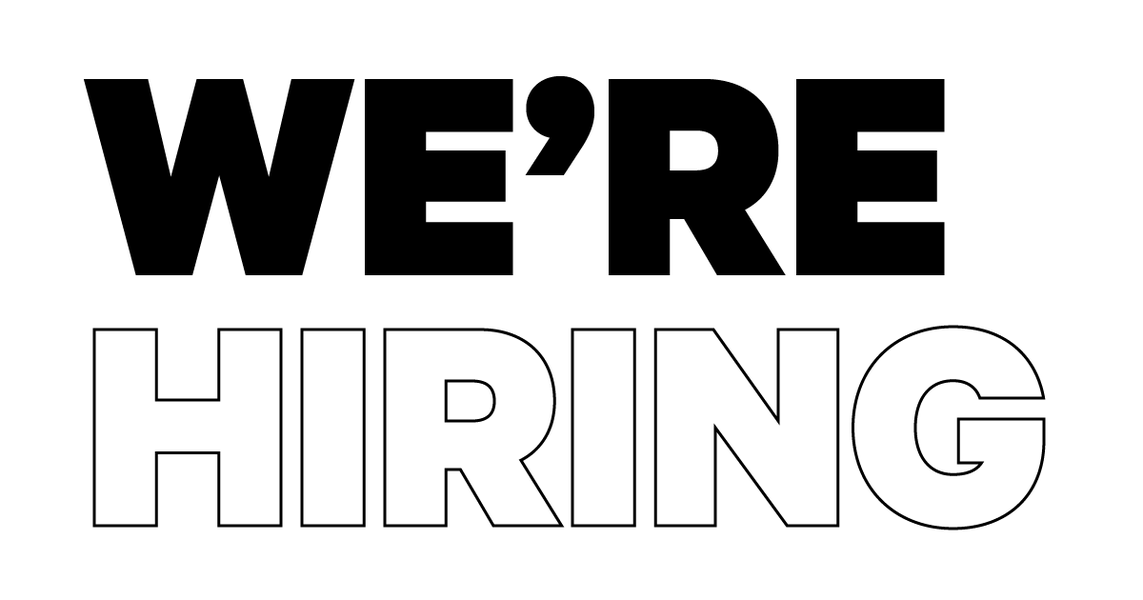The AI Wearable That Makes Your Life Unforgettable
Your greatest asset is your time. So stop wasting it jotting notes or chasing forgotten conversations.
The Limitless AI Pendant captures, transcribes, and organizes every meaningful interaction automatically. Get instantly searchable transcripts, smart summaries, and contextual reminders - all at your fingertips, all fully encrypted.
Tap into the future of productivity and free your mind to focus on what truly matters with Limitless.
Learning in the AI Age: Transformation, Challenges, and the Path to Equitable Education
The artificial intelligence revolution is fundamentally reshaping learning, teaching, and thinking about education. From AI tutors that adapt to individual learning styles to schools operating entirely without traditional teachers, we're witnessing the most significant transformation in education since the printing press. But as this technological wave sweeps across classrooms worldwide, critical questions emerge: Who benefits? Who gets left behind? And what essential elements of human learning remain unchanged despite the digital revolution?
The Current Transformation: What's Actually Changing
The numbers tell a compelling story of rapid adoption. 60% of teachers have incorporated AI into their regular teaching routines, while the global AI in education market reached $7.57 billion in 2025, up 46% from 2024. This isn't just about ChatGPT in classrooms—we're seeing fundamental shifts in how education operates:
Personalized Learning at Scale: AI-powered adaptive learning platforms like Squirrel AI in China have demonstrated up to 30% improvements in academic performance by tailoring content to individual learning patterns. Students using AI-driven personalized learning tools scored 30% higher on standardized tests compared to traditional classrooms, with particularly strong gains in mathematics (8 percentile points) and reading (9 percentile points) in a single year.
Administrative Revolution: Teachers using AI for administrative tasks save 44% of their time on research, lesson planning, and material creation, freeing them to focus on what humans do best—inspiring, mentoring, and providing emotional support.
Global Policy Shifts: Countries are rapidly integrating AI into national curricula. China will make AI education compulsory for all primary and secondary students starting September 2025, while South Korea rolled out AI-powered digital textbooks backed by $830 million in funding. Estonia's KrattAI initiative aims to ensure all students aged 7-19 achieve digital fluency by 2030.
The Alpha School Experiment: A Glimpse into an AI-First Future
Perhaps nowhere is this transformation more dramatic than at Alpha School in Austin, Texas, featured in NBC's groundbreaking report. This private K-12 institution has eliminated traditional teachers entirely, replacing them with AI tutors and human "guides" who coach students but are explicitly forbidden from teaching.
Students spend just two hours daily on core academics through AI-powered apps that gamify lessons, monitor progress, and use eye-tracking technology to maintain attention. The remaining time focuses on life skills, from solving Rubik's cubes to running real businesses—including 11-year-olds operating an Airbnb that generated $10,000 in confirmed bookings.
The results? Alpha claims students score in the 90th percentile on standardized tests across most grade levels. However, at $40,000 annual tuition, this model raises profound questions about equity and access—a theme that runs throughout the AI education landscape.
Key Startups Building the Future of Learning
The startup ecosystem is driving much of this innovation, though EdTech funding fell to its lowest level since 2014 at $2.
Inclusive Solutions: Magic School AI, which secured significant funding in 2025, serves over 4 million educators worldwide with AI tools designed for responsible use in education, emphasizing ethical implementation and teacher empowerment rather than replacement.
Social Impact Focus: Among Google's 21 AI for Education startup cohort, companies like Angaza Elimu (Kenya) focus on personalized learning for underserved communities, while Digify Africa (South Africa) delivers high-tech learning through low-tech interfaces.
What Isn't Changing: The Irreplaceable Human Elements
Despite the technological revolution, fundamental aspects of learning remain stubbornly human. Critics and researchers highlight several areas where AI falls short:
Motivation and Accountability: As one education entrepreneur notes, "The most fundamental thing that AI in education does not solve is that it does not deal with learner motivation." While Khan Academy provides excellent math resources, it hasn't replaced math teachers because students still need human accountability partners to choose learning over entertainment.
Social and Emotional Development: Research shows that over-reliance on AI can reduce students' creativity, critical thinking, and communication skills. The human touch—empathy, encouragement, and real-time emotional support—remains irreplaceable for holistic development.
Critical Thinking and Judgment: Studies find that students who become overly dependent on AI tools risk not developing essential analytical skills, including the ability to "analyze information, construct logical arguments, and integrate knowledge from diverse sources."
Complex Communication: While AI can provide information, it struggles with the nuanced, contextual communication that effective teaching requires. As one study concluded, AI cannot ensure students are "present and listening"—a fundamentally human challenge requiring human solutions.
The Critical Challenge: Digital Divides and Equity
Perhaps the most pressing concern is that AI could exacerbate rather than alleviate educational inequality. The data reveals stark disparities:
Access Barriers: UNESCO reports that 2.6 billion people still lack internet access, with 1.8 billion in rural areas. In education, 60% of primary schools globally are not connected to the internet. In California alone, 40% of low-income children don't have home internet access.
The New Digital Divide: Research indicates that urban districts serving students of color are less likely to provide AI training or policies, while students without access to high-speed internet and modern devices are increasingly left behind as AI becomes integral to learning.
Bias in AI Systems: Studies reveal significant bias in AI detectors against non-native English speakers, with over half of non-native English writing samples misclassified as AI-generated. This creates particular challenges for immigrant students and English language learners.
Cost Barriers: Advanced AI education tools often come with substantial costs. While simple generative AI systems may cost $25 monthly, larger adaptive learning systems can cost tens of thousands of dollars, putting them out of reach for under-resourced schools and communities.
Global Impact Initiatives: Bridging the Gap
Infographic explaining the digital divide: its definition, affected groups, global coverage disparities, and solutions to improve technology access
Despite these challenges, initiatives worldwide are working to ensure AI serves equity rather than undermining it:
UNESCO's Framework: UNESCO has developed AI competency frameworks for both teachers and students and established guidelines emphasizing inclusion, cultural diversity, and human agency in AI education deployment.
World Bank Initiatives: The organization reports that AI can help address critical teacher shortages—with 58 million additional teachers needed globally—through intelligent tutoring systems and personalized learning, particularly in low-income countries where pupil-teacher ratios are often double those in OECD nations.
Country-Specific Programs: India's YUVAi initiative engages students aged 8-12 in AI education combined with social-emotional learning, while Finland's Elements of AI course has reached over 1.2 million participants worldwide, serving as a model for accessible, non-technical AI education.
Public-Private Partnerships: The UAE is developing an AI-powered tutoring platform aligned with its national curriculum and plans to train over one million people in AI by 2027, demonstrating how government investment can scale access.
Evidence of Impact: What the Research Shows
The evidence for AI's educational effectiveness continues to grow:
However, systematic reviews indicate that current evidence regarding measurable educational outcomes remains mixed, with researchers calling for more rigorous studies of AI's long-term impact on learning.
Key Resources for Impact-Focused Practitioners
Policy Guidance:
Funding and Investment:
Implementation Resources:
The Path Forward: Balancing Innovation with Equity
As we navigate this transformation, several principles emerge for ensuring AI serves educational equity:
1. Human-Centered Design: As UNESCO emphasizes, AI must enhance rather than replace human capacities, maintaining the essential human elements of education while leveraging technology's power to personalize and scale.
2. Universal Access: Investment in digital infrastructure and affordable AI tools must be a priority, particularly in underserved communities where AI could have the greatest impact.
3. Teacher Empowerment: Rather than replacing educators, AI should free up teachers to focus on high-value activities—mentoring, inspiring, and providing the social-emotional support that remains uniquely human.
4. Ethical Framework: Fewer than 10% of schools currently have formal AI guidance, highlighting the urgent need for comprehensive policies addressing privacy, bias, and appropriate use.
5. Evidence-Based Implementation: Continued research on AI's comparative impact versus traditional teaching methods is essential for making informed decisions about educational technology investment.
The AI revolution in education is not inevitable—it's a choice. By focusing on equity, maintaining human connection, and prioritizing evidence over hype, we can harness AI's transformative potential to create more personalized, accessible, and effective learning experiences for all students, regardless of their background or circumstances.
The question isn't whether AI will change education—it already has. The question is whether we'll steer that change toward justice and opportunity for every learner, or allow it to deepen the divides that already exist.
Share your feedback on the AI for Impact Newsletter
AI for Impact Opportunities
Start learning AI in 2025
Keeping up with AI is hard – we get it!
That’s why over 1M professionals read Superhuman AI to stay ahead.
Get daily AI news, tools, and tutorials
Learn new AI skills you can use at work in 3 mins a day
Become 10X more productive
News & Resources
😄 Joke of the Day
Perfect — I’ll prepare this in a sleek, ready-to-publish newsletter layout optimized for email or LinkedIn, keeping it visually clear, on-brand for “AI for Impact,” and easy to skim.
AI for Impact Weekly
Date: August 12 2025
😄 Joke of the Day
Why was the AI hired as a history teacher?
Because it has all the best dates in the archive!
🌍 News
Crisis at the Alan Turing Institute
Staff at the Alan Turing Institute have filed whistleblower complaints over toxic culture, leadership gaps, and strategic misalignment, prompting calls for reform as public funding hangs in the balance.
Wired’s ‘Uncanny Valley’ Examines AI in Action
Wired’s Uncanny Valley covers OpenAI’s $1/year federal access model, how AI drones rescued a missing hiker in the Italian Alps, and the broader policy impacts of AI in public safety.
AI Browser as the Next Platform
In a compelling interview with The Verge, Perplexity’s CEO describes Comet, an AI-enhanced browser that uses a “sidecar” integration to assist with summarizing, scheduling, and communication—potentially evolving into a new kind of AI operating system.
🎓 Learning Resource
The University of Oxford’s Institute for Ethics in AI has launched Accelerating AI Ethics, a podcast exploring real-world dilemmas and governance strategies that shape responsible AI.
🔗 LinkedIn Connection
Follow Frédéric Werner, Head of Strategic Engagement at the ITU’s AI for Good initiative. He connects global leaders, innovators, and policymakers to drive AI solutions for the UN Sustainable Development Goals.













